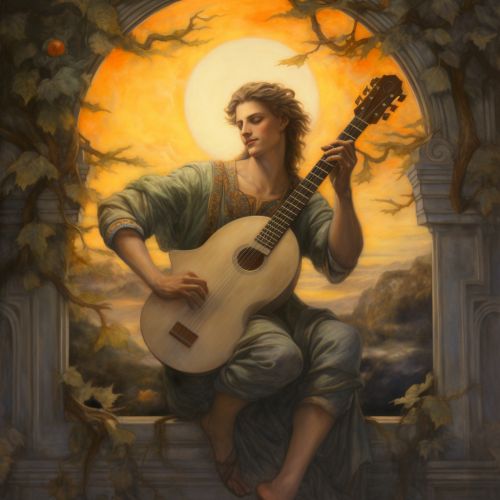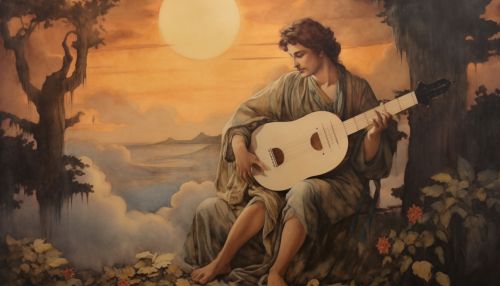Apollo (mythology)
Overview
Apollo is one of the most important and complex of the Olympian deities in classical Greek and Roman mythology. The son of Zeus and Leto, and the twin brother of Artemis, Apollo was the god of many things, including music, poetry, art, oracles, archery, plague, medicine, sun, light, and knowledge.
Etymology
The etymology of Apollo's name is uncertain. The ancient Greeks themselves offered multiple etymologies. For example, Plato in Cratylus connected the name with απόλυσις "purification", απόλουσις "redemption", απόλουσθαι "to be purified", and απολούειν "to wash away".
Attributes
Apollo had a multitude of attributes and functions. He was a god of music and led the choir of the Muses, the goddesses of inspiration in literature, science, and the arts. He was also a god of prophecy, known for his oracles. Apollo was a god of healing and disease, often associated with the sun and light. He was also a god of archery, associated with a silver bow and arrows.


Cult
Apollo was worshipped throughout the Greek world, and his cult was spread by Greek colonists into the Aegean islands, Asia Minor, Sicily, and Italy. He was a major deity in the ancient Greek religion and was revered as the god of prophecy. His most important shrine was at Delphi, where the Oracle of Delphi resided.
Myths
Apollo is a central figure in Greek mythology. He is involved in numerous myths and legends, including his birth on the island of Delos, his slaying of the Python at Delphi, his love affairs with various mortal women and nymphs, and his role in the Trojan War.
Influence
Apollo's influence extended beyond the religious sphere. He was a significant figure in ancient Greek literature, appearing in the works of Homer, Hesiod, and other authors. He was also a popular subject in ancient Greek art, often depicted playing the lyre or shooting arrows.
Legacy
Apollo's legacy extends into the modern world. His name and attributes have been adopted in various fields, including science, literature, and the arts. For example, the Apollo program, the project that landed the first humans on the moon, was named after him.
